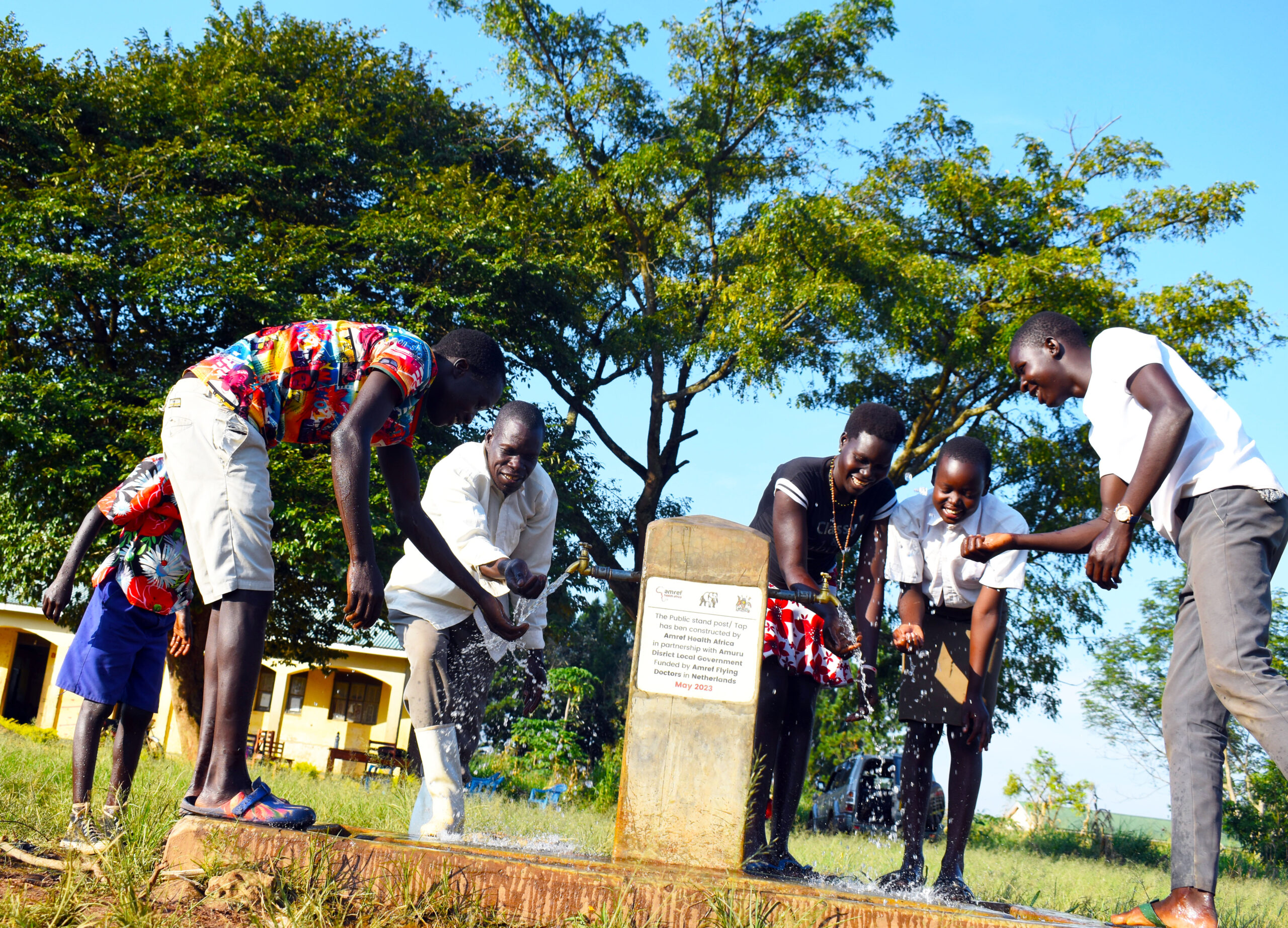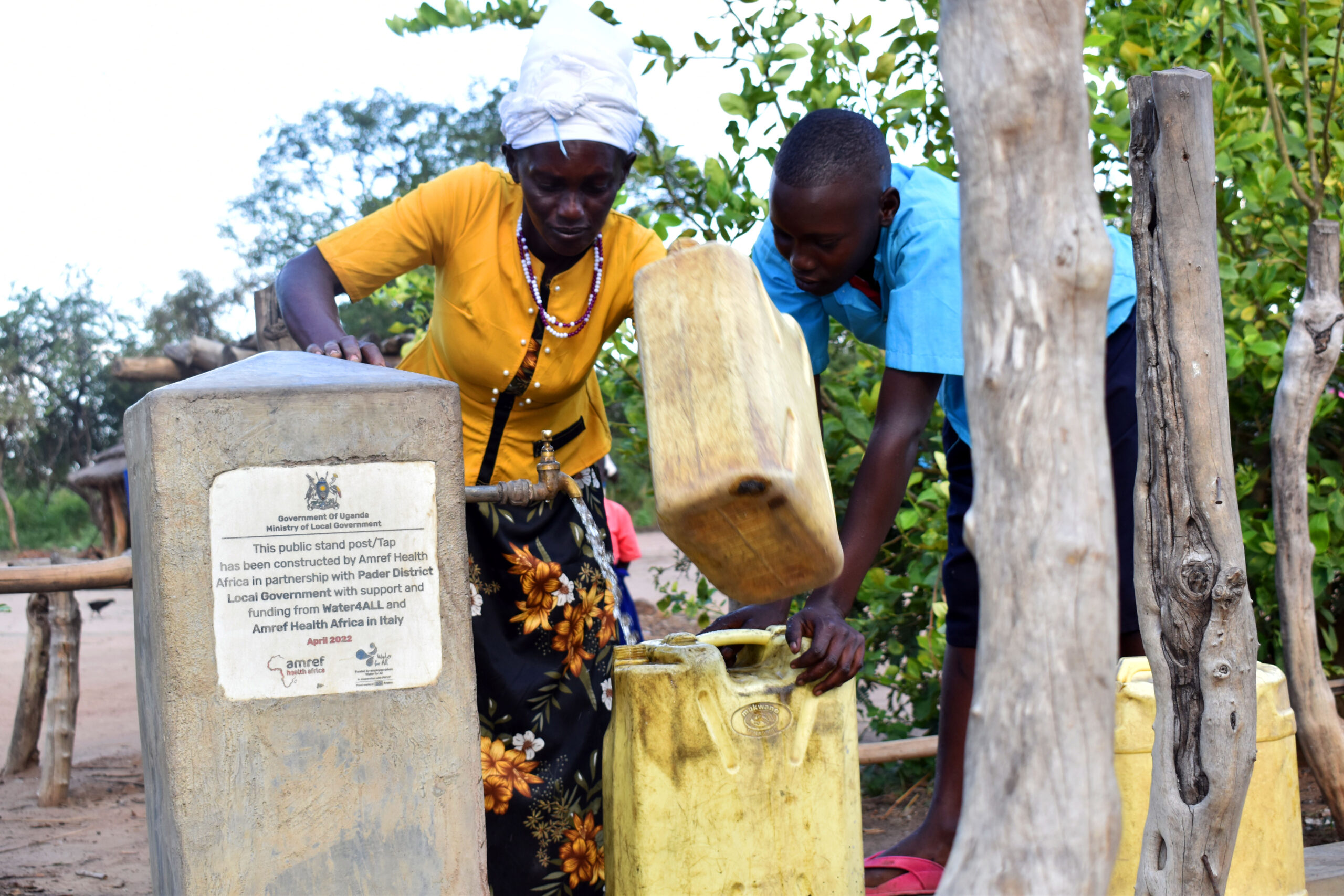Pedaling Change: How a Bicycle is Revolutionizing Family Planning Access in Rural Namayingo.
Wednesday, 8 January, 2025

At an outreach point in Bukimo-A, Nandera Winfred was attentively assisting two young people, guiding them through the process of administering DMPA-SC self-injections, commonly known by its brand name, Sayana Press. The injectable contraceptive, which lasts for three months, is part of her efforts to improve family planning access in her community. Shortly after her interaction with the young clients, Winfred shared her inspiring story.
“My name is Nandera Winfred. I am 50 years old and live in Butebeyi-C. I work as a Village Health Team (VHT) member and community facilitator attached to Mulombi HC II under the Heroes for Gender Transformative Action programme, along with two other organizations. My role involves sensitizing communities on family planning, distributing contraceptives, mapping pregnancies, encouraging antenatal care visits, responding to SGBV cases, and more.”
Winfred is among the 300 Community Health Workers who received Buffalo bicycles through the Heroes Programme supported by World Bicycle Relief to ease mobility in delivering health services, to last-mile communities. This seemingly simple tool has had a profound impact on her ability to serve her community.

Easing Family Planning Access
Winfred’s bicycle has significantly improved access to family planning in her sub-county. “Before, I could only visit nearby villages due to the challenges of transportation. Now, I can move across 13 villages compared to the five or six I previously reached,” she explained.
Her bicycle allows her to carry essential family planning commodities, like Sayana Press, directly to community members. This eliminates the need for beneficiaries to travel long distances to health facilities, reducing barriers to access.
Winfred’s story of improving access to family planning is echoed by the facility data clerk at Mulombi HCII. “Previously, we averaged 40-60 family planning clients per month at the facility. Now, we see 200-300 clients seeking both short and long-term methods. This surge has bolstered the facility’s ability to claim Results-Based Financing (RBF) funds through the Heroes Programme. “These funds have supported us in improving service delivery at the facility level, allowing us to purchase a flat screen for health education, furniture, and other resources.” Steven Onyango explained.
A Lifeline In Emergencies
Winfred’s bicycle is more than just a transportation tool—it has become a lifeline for her community. She recounted a recent incident involving a pregnant woman in Lugaga who had been battered by her husband and barred from returning home. “When the chairman called me, I immediately cycled to the scene. I counseled both the woman and her husband, issued her an E-voucher for SGBV services at the health facility, and ferried her there using my bicycle. She received the care she needed, and peace was restored.”
Such scenarios were far more challenging before she received her bicycle. “Previously, I would have to walk or wait for someone to take me to the location, which delayed my response and placed a financial burden on the beneficiaries. Now, I can respond swiftly and at no extra cost to those in need.”
Beyond Family Planning
The benefits extend beyond family planning services. During recent polio and measles-rubella immunization campaigns, Winfred used her bicycle for community mobilization, even navigating rainy conditions with ease. “It’s as simple as tying a megaphone to the back and heading out,” she said.
The bicycle also enables her to conduct follow-ups, home visits, and school visits more effectively. She has been able to reach adolescent mothers who were previously hidden by their caregivers due to stigma. “I’ve brought several adolescent mothers to the health facility, sometimes with a scarf covering their faces, so they can access health services discreetly and quickly.”
A personal and community game-changer.

Winfred affectionately refers to her bicycle as her “ambulance.” She has used it to transport patients to health facilities on multiple occasions, including pregnant women attending antenatal care visits.
Beyond work, the bicycle has brought unexpected personal benefits. “I used to feel tired and fatigued before, but now I get exercise while working. I feel healthier and more energized,” she said.
Winfred’s story illustrates how a simple tool like a bicycle can transform access to health services, especially family planning, in underserved communities. With the support of the Heroes for Gender Transformative Action programme and World Bicycle Relief, Winfred and other VHTs are breaking down barriers, empowering individuals, and creating healthier, more resilient communities.
Story and photos by Daphine Ayebare
Amref Health Africa teams up with African communities to create lasting health change.




Comments
No comments found.